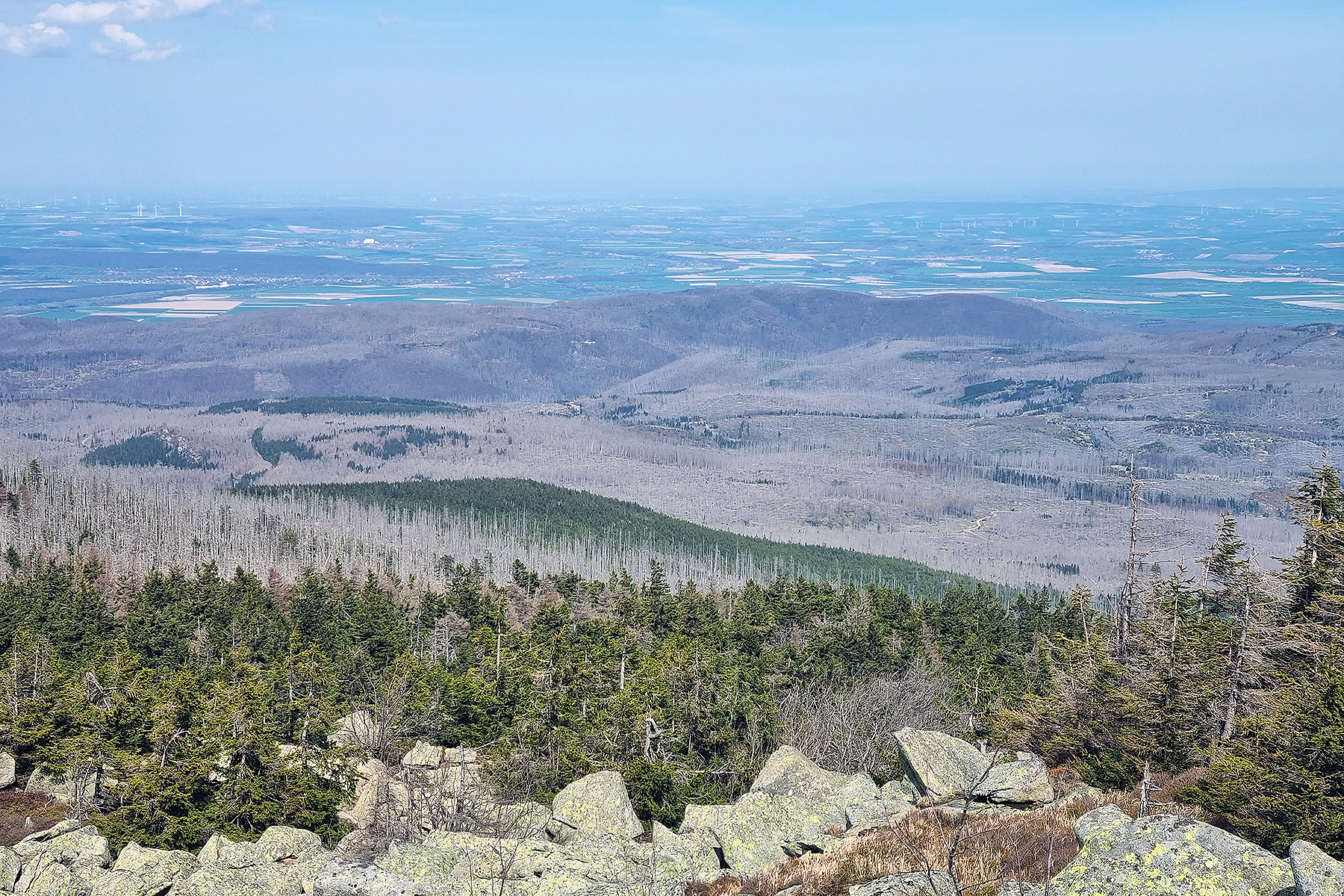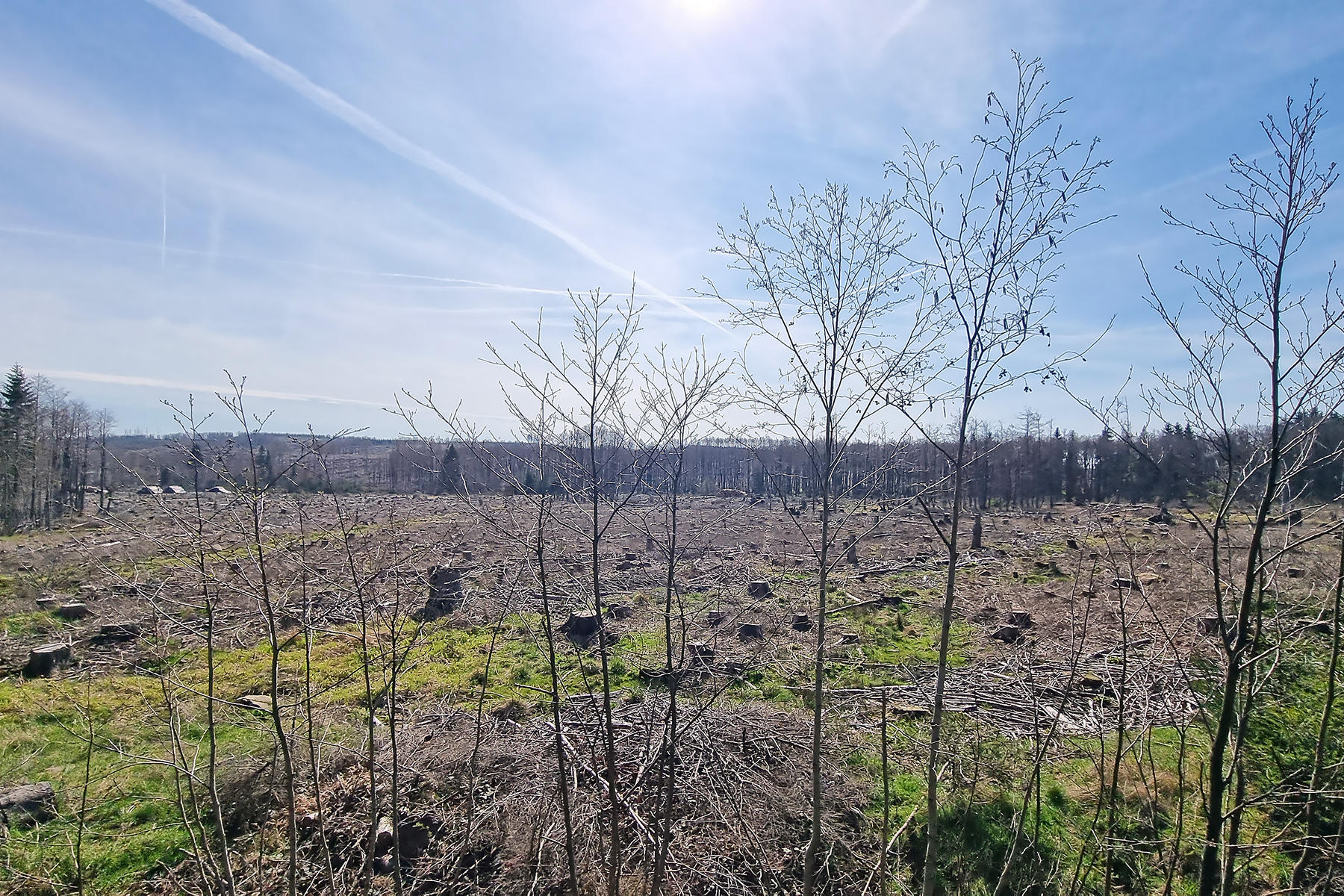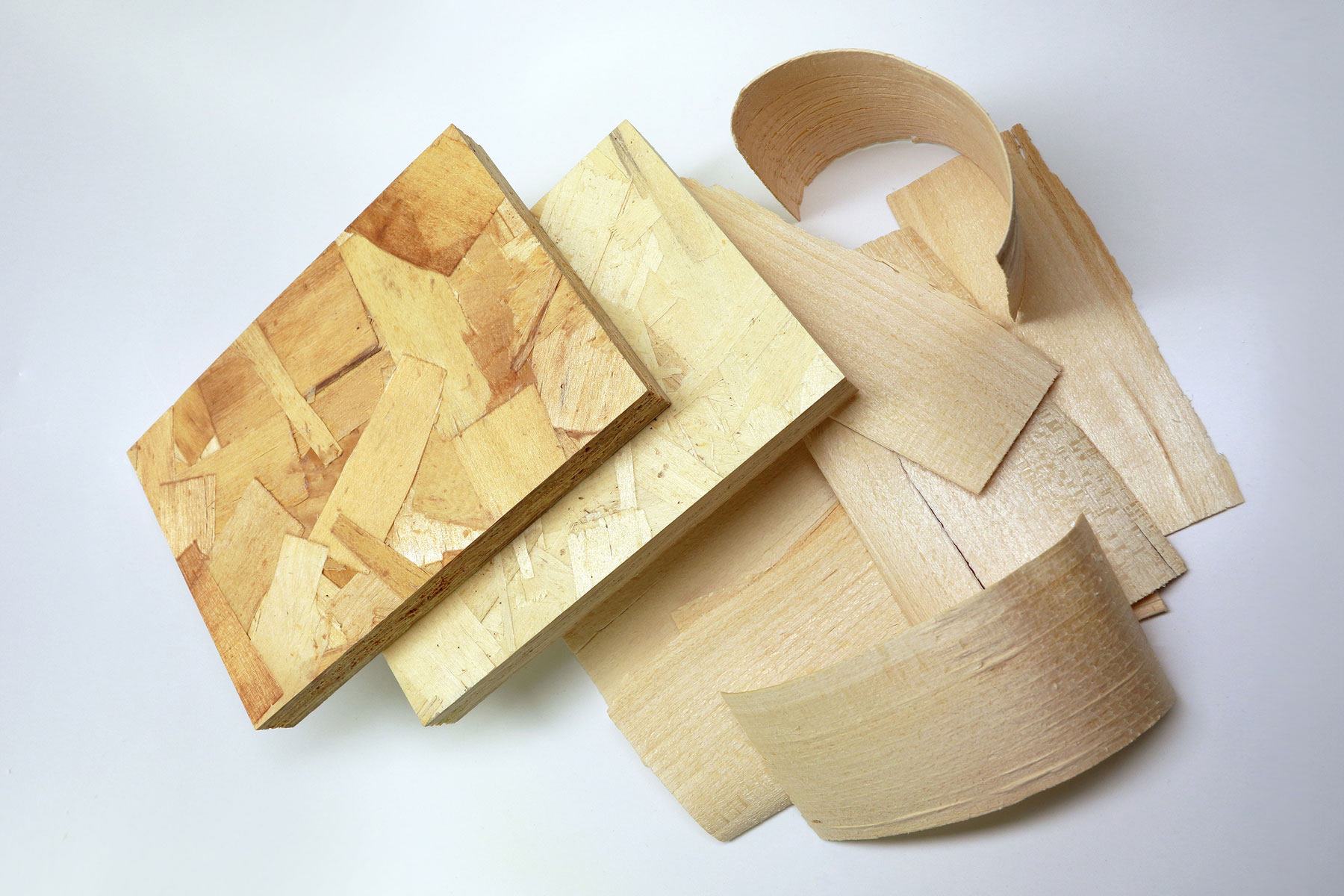Regional Study Harz (REHA):
Development scenarios for reforestation and their socio-economic effects
Heat, drought, storms, bark beetles: In the Harz National Park, climate change is leading to widespread forest damage. Reforestation will take decades. This has a significant impact on the timber and forestry industry, tourism and, consequently, the well-being of the regional population. In collaboration with research and regional partners, we are developing various scenarios for reforestation and are predicting their ecosystem services as well as their socio-economic effects above and beyond this. One approach involves replacing the dead spruce stands with more climate-resistant deciduous tree species. At the Fraunhofer WKI, we are investigating the achievable wood quality and yield as well as the suitability of the wood for the production of wood-based materials.



The scenarios for the reforestation of the Harz mountains encompass various levels of intensity of silvicultural action: from undisturbed succession (no intervention), through quality development of naturally occurring tree species (maintenance interventions in the succession areas), and on to the planting of location-adapted, high-yielding tree species.
The selection of tree species and mixed tree-species types is by far the most important measure for the adaptation of forests to climate change. In order to be able to predict forest development under changing climate conditions, a Decision Support System (DSS) for tree-species selection has already been established in Lower Saxony, Saxony-Anhalt, Schleswig-Holstein and Hesse. Within the framework of the project, this system is to be expanded specifically for the Harz mountains - methodically and with regard to the range of species covered. On this basis, the project team will simulate forest development in the Harz mountains over the next 40 years for various silvicultural systems and will analyze the medium- and long-term effects on wildlife, forestry operations, timber use, tourism and society.
The focus of the Fraunhofer WKI lies on the utilization of wood for wood-based materials. We are investigating the suitability of the hardwood species birch, aspen, rowan and robinia for the industrial production of oriented strand boards (OSB) and laminated veneer lumber (LVL). In order to optimize the product properties, we specifically adapt the process technology:
- OSB: Modification of the machining technology
- LVL: Modification of the log pre-treatment and the peeling process
In addition, we optimize the bonding properties through the application of adapted adhesive systems.
Last modified:
 Fraunhofer Institute for Wood Research
Fraunhofer Institute for Wood Research 
